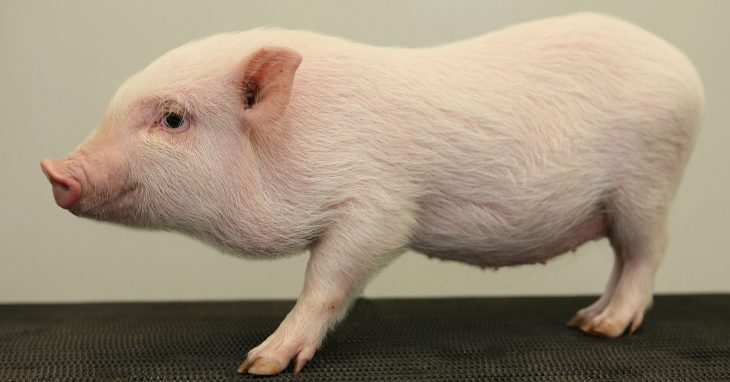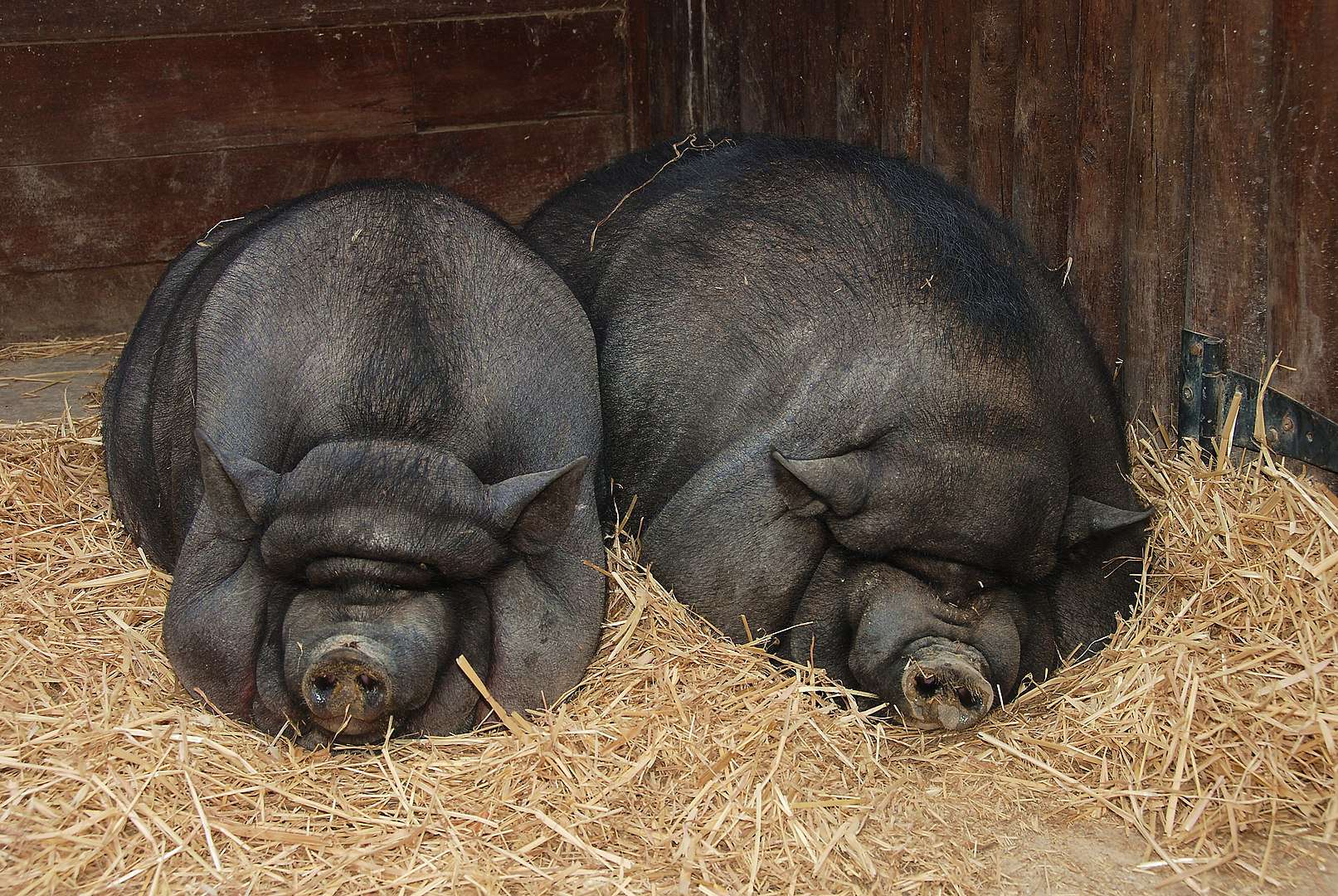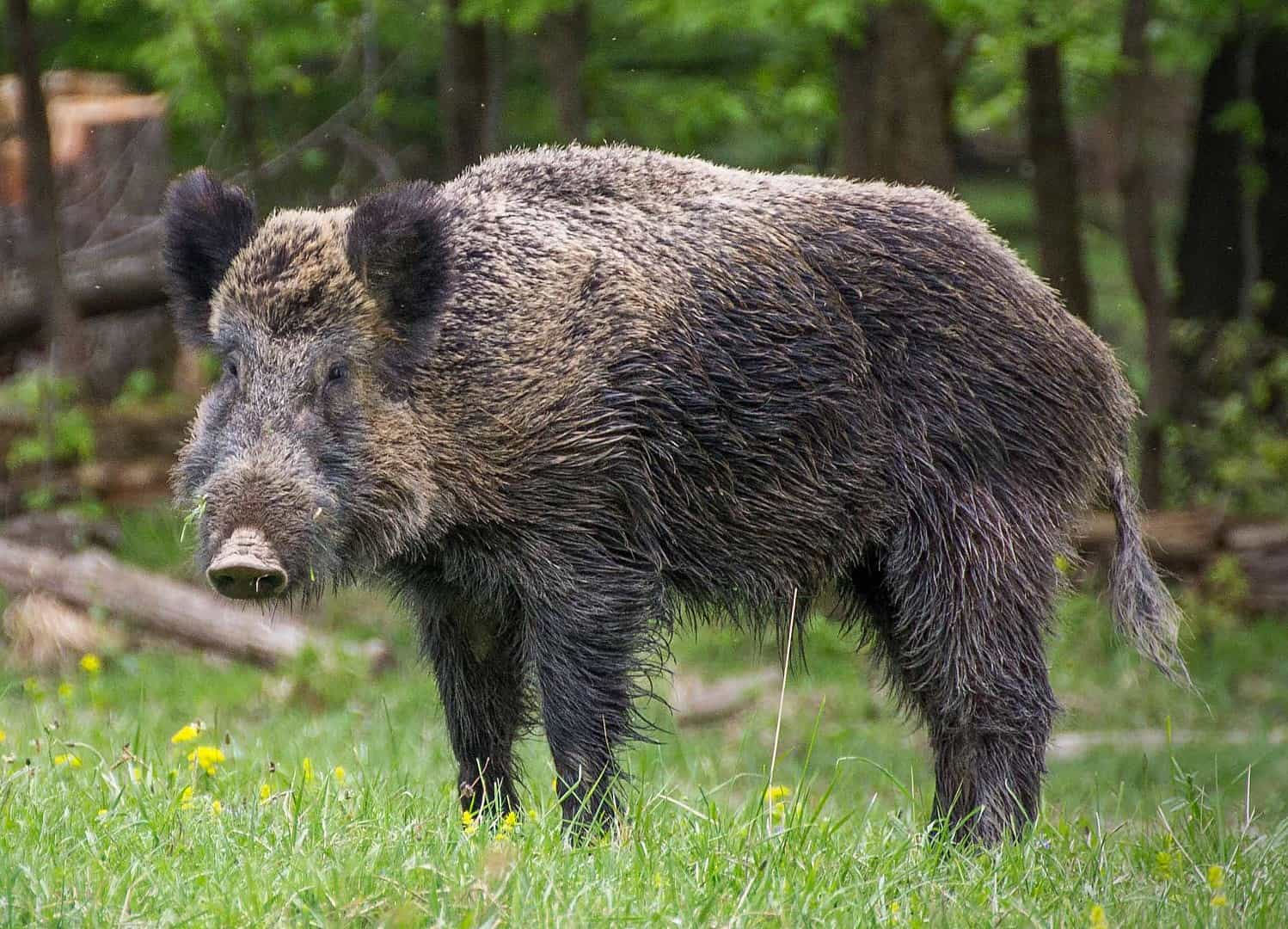
Teacup pigs look and sound like they’re cute, but you’d be surprised by the cruel truth behind them. While it may seem like a quirky pet option for most people, teacup pig breeding is a dark industry that exploits these poor creatures. Find out the real deal behind these animals with these teacup pig facts.
- Teacup pigs are also known as mini-pigs.
- Other names for teacup pigs are micro-pigs and pocket pigs.
- They start out at a weight of around just 1 kg.
- Between 200,000 to 1 million teacup pigs live in Canada and the USA.
- Hundreds of sanctuaries for teacup pigs exist across Canada and the USA.
- The first teacup pigs appeared in US zoos in 1986.
- Teacup pigs aren’t a single breed of pig but are instead born from potbellied pigs.
- These pigs are deliberately underfed to keep them small.
- Breeders also sometimes deliberately use inbreeding to produce small pigs to sell as teacup pigs.
- Herds of up to 100 pigs can sometimes descend from a single pair of siblings.
- Once properly taken care of, teacup pigs quickly grow to their normal size.
- Professional pig handlers don’t know how pig teacup pigs can grow once they’re properly taken care of.
- Owners have been known to abandon or even kill teacup pigs that grow bigger than their previous size.
- Up to 90% of former teacup pigs end up dead or abandoned in less than 2 years.
- Over 300,000 former teacup pigs end up in sanctuaries every year.
- The teacup trade is an unregulated global industry.
- Most owners don’t realize that their teacup pig will grow much bigger than advertised.
- Funding to help abandoned or rescued teacup pigs can barely keep up.
- Existing sanctuaries for teacup pigs also regularly run short on space.
- Crowdfunding is a major source of funding to help teacup pigs.
Teacup pigs are very expensive.
One more reason you shouldn’t buy into what’s essentially a cruel scam is the price tag attached to these poor animals. The smallest price tag for a teacup pug comes to around $750, which can go even higher into $3500 at the most.
Even if you get a teacup pig for any price, you still have to put money into feeding them and providing them with proper healthcare, such as vaccines. Once you factor those in, you can expect to regularly spend thousands of dollars on your teacup every single year.
Teacup pigs have a very short lifespan.
Normally, the potbellied pigs they descend from can live up to 18 years with a healthy lifestyle. However, depending on how their breeders made them, teapot pigs usually live only up to 5 years. This especially happens to teacup pigs born through inbreeding, as they tend to have genetic defects that result in bone and immune system problems.
You can’t keep pigs as pets in some places.
One factor that’s not usually noticed behind the abandonment of teacup pigs is actually shared with pet pigs in general. Some places in the USA and other countries have zoning laws that include restrictions on what kinds of animals you’re allowed to keep as pets. Many of these laws make it illegal to keep pigs as pets, more often than not forcing owners to literally throw their pets away.
Pigs in general are actually social animals.
They may not be as social as dogs, but pigs like to live together in groups. Even with a caring owner, a solitary pig will get lonely, which often results in negative behavior. At best, they’d get bored – but they can also become aggressive in extreme cases.

Your teacup pig might not get along with your other pets.
Generally, pigs are only social animals with fellow pigs. When it comes to other animals, even professionals find it hard to predict what might happen. Sometimes, the animals adapt to each other’s presence, but sometimes, they don’t.
For example, a dog and a teacup pig might get along while the latter is still small, but once it gets bigger, the teacup pig tends to compete with the dog for food.
Professionals advise owners of teacup pigs to have them neutered.
This actually helps them adapt to and coexist with any other pets you might have. For most owners, neutering made their male teacup pigs less aggressive.
Professionals also advise owners of teacup pigs to give them regular exercise.
This applies to all pets in general, as regular exercise can keep them healthy and occupied. However, this is especially helpful for teacup pigs who usually suffer from bad health thanks to their origins. Not only would it make them healthier, but it might also actually help them live longer and bond with you better.
Teacup pigs can get really messy.
Not exclusive to teacup pigs, this is a trait shared with all pigs in general. While you can train a pig to make them less messy, you can’t really change a pig’s nature. They will always make a mess sooner or later, to a greater or lesser degree.
Abandoning a teacup pig that’s grown too big to handle is a bad idea.
For one thing, it’s cruel and inhumane, and while that’s bad by itself, it could also get you into trouble with the law for animal cruelty. And for another thing, if the abandoned teacup pig adapts to and survives in the wild for a time, it could result in complications.Specifically, they might meet and mate with wild pigs in your area, which could have unpredictable effects on your local ecology. In turn, this could also land you in trouble with the law for damaging the environment.

Paris Hilton is a famous owner of a teacup pig.
She found them online as piglets, with the seller claiming that the teacup pigs would never weigh more than 5 kg when fully-grown. Hilton named her pet Princess Pigelette, and as expected, Princess Pigelette grew much bigger and heavier than the seller claimed. To Hilton’s credit,she kept Princess Pigelette – unlike many other owners of teacup pigs out there.
Was this page helpful?
Our commitment to delivering trustworthy and engaging content is at the heart of what we do. Each fact on our site is contributed by real users like you, bringing a wealth of diverse insights and information. To ensure the highest standards of accuracy and reliability, our dedicated editors meticulously review each submission. This process guarantees that the facts we share are not only fascinating but also credible. Trust in our commitment to quality and authenticity as you explore and learn with us.
